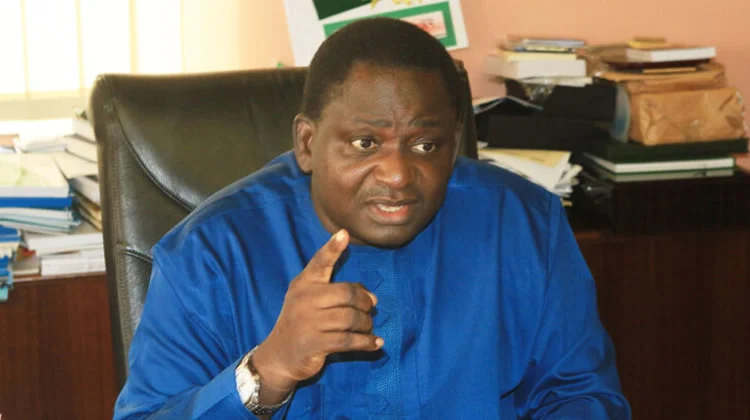The presidency has said the security agencies are in firm control of the security situation in the country.
Femi Adesina, the Special Adviser, Media and Publicity to President Muhammadu Buhari, made the claim at the opening ceremony of a 3-day strategic communication conference for state commandants and public relations officers of the Nigeria Security and Civil Defence Corps (NSCDC), on Wednesday in Abuja.
- Peter Obi can no longer deceive Anambra youths with Obidient mantra – PDP
- Naira Redesign: APC trying to paint a falling Structure – PDP
The United State of America, the United Kingdom and some other countries had issued a security alert, predicting imminent attacks on the Federal Capital Territory.
However, Adesina said, “our security agencies have a firm control of the security situation in Nigeria”.
While debunking the claim that insecurity was rising in the country, he said “insecurity is not gone but it’s not rising.”
The presidential spokesman, who said it is harder nowadays to kill a story due to the rising influence of social media, emphasised the need for public relations practitioners to be professional.
In his goodwill message, the spokesman of the Department of State Services (DSS), Peter Afunaya, warned Nigerians to beware of the bombardment of fake news ahead of the 2023 general elections.
He said the social media had come to stay and security agencies must come to terms with the current situation in the information circle, saying personnel had to upgrade themselves to tackle the situation.
The Commandant General of the NSCDC, Ahmed Abubakar Audi, speaking about the theme of the Conference, “Managing strategic sensitive conflict communications amidst rising insecurity for organisational development”, said it speaks to the security challenges of the country.
“Nigeria in recent times has witnessed security challenges such as Boko Haram activities, banditry, kidnapping and Herders-Farmers clashes.
“All these unwanted scenarios have made national security threats to be a major issue for the government and have prompted a huge allocation of the national budget to security.
“That is not all; there are frequent assaults to many key national assets and infrastructure, oil bunkering, electrical/communication installations vandalism and many more,” he said.

 Join Daily Trust WhatsApp Community For Quick Access To News and Happenings Around You.
Join Daily Trust WhatsApp Community For Quick Access To News and Happenings Around You.


